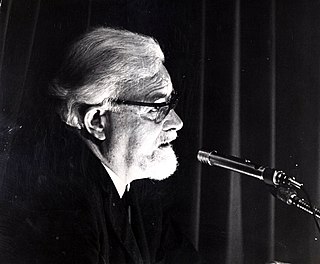A Quote by Henri Frederic Amiel
Before crime is committed conscience must be corrupted, and every bad man who succeeds in reaching a high point of wickedness begins with this.
Related Quotes
Every time a crime was committed by a Muslim, that person's faith was mentioned, regardless of its relevance. When a crime is committed by a Christian, do they mention his religion? ... When a crime is committed by a black man, it's mentioned in the first breath: 'An African American man was arrested today...' But what about German Americans? Anglo Americans? A white man robs a convenience store and do we hear he's of Scottish descent? In no other instance is the ancestry mentioned.
To punish a man because he has committed a crime, or because he is believed, though unjustly, to have committed a crime, is not persecution. To punish a man, because we infer from the nature of some doctrine which he holds, or from the conduct of other persons who hold the same doctrines with him, that he will commit a crime, is persecution, and is, in every case, foolish and wicked.
there was no crime in unconscious plagiarism; that I committed it everyday, that he committed it everyday, that every man alive on earth who writes or speaks commits it every day and not merely once or twice but every time he open his mouth… there is nothing of our own in it except some slight change born of our temperament, character, environment, teachings and associations
There is one fairly good reason for fighting - and that is, if the other man starts it. You see, wars are a great wickedness, perhaps the greatest wickedness of a wicked species. They are so wicked that they must not be allowed. When you can be perfectly certain that the other man started them, then is the time when you might have a sort of duty to stop them.
Listen to these words of [apostle] Paul: "We war not against flesh and blood, but against principalities and powers, and the rulers of the darkness of this world and spiritual wickedness that's in high places." It's in "high places" that the plot against Black and Brown, and poor White is going on; it's spiritual wickedness that's way up in the ruling classes of religious people who don't want to see the little man rise. It's the principalities and the powers.
It is possible to set your standards too high, which can undermine a man's confidence and ability to perform. Instead of reaching for the stars and settling for the moon, there is considerable evidence that man is better served reaching for a blade of grass and settling for an under-the-table handshake deal.
It is not the conscience which raises a blush, for a man may sincerely regret some slight fault committed in solitude, or he may suffer the deepest remorse for an undetected crime, but he will not blush... It is not the sense of guilt, but the thought that others think or know us to be guilty which crimsons the face.









































